KARLA TURNER, PH.D.
KARLA TURNER, A Life Intruded Upon
Dr. Karla Turner: Abduction Investigator And Human Rights ActivistA Posthumous Tribute by John Chambers, Reprinted by Permission of UFO Magazine  If you wanted to find four words to describe the life of alien abduction investigator Karla Turner, Ph.D., those words might be "intrepid human rights activist." A former college instructor who held a doctorate in Old English Studies from the University of North Texas, Turner had authored three books on the abduction phenomenon, Into the Fringe (1992), Taken (1994), and, with psychic Ted Rice, Masquerade of Angels (1994). She was convinced that the aliens were here not to help us out, but to steal from us the sovereignty of our souls. If you wanted to find four words to describe the life of alien abduction investigator Karla Turner, Ph.D., those words might be "intrepid human rights activist." A former college instructor who held a doctorate in Old English Studies from the University of North Texas, Turner had authored three books on the abduction phenomenon, Into the Fringe (1992), Taken (1994), and, with psychic Ted Rice, Masquerade of Angels (1994). She was convinced that the aliens were here not to help us out, but to steal from us the sovereignty of our souls.She wanted us to fight back--with the same courage that she herself showed when, after a period of struggle, she succumbed to a particularly virulent form of breast cancer, on Jan. 9, 1996. The diminutive scholar, author and activist, who was born in 1947 and made her home in Roland, Arkansas, had been involved in alien abduction work since 1988. Two traits, she had come to conclude, characterized alien behavior above all: deceitfulness and cruelty. In *Into the Fringe, published by Berkley, she recounted the abduction experiences of herself, her husband Casey (an assumed name), and several other members of her family. The family had first became aware of their experiences in 1988. Later, they were able to recall abduction events going back to their childhoods; the experiences were uniformly disturbing. In er second book, *Taken (published, like Masquerade of Angels, by her own press, Kelt Works, in Roland), Turner told the stories of eight female abductees who had contacted her after the publication of her first book. *Masquerade of Angels was the biography of Louisiana psychic Ted Rice, who, used to channeling benevolent entities, then becoming aware of his alien abduction experiences, first believed the aliens were benign, then came to the conclusion that they were no more than remorseless predators. From beginning to end, Turner had been struck by how contradictory the stories of the aliens were. They would, she averred, say anything they wanted to attain their ends. As the abductees in *Taken reported it, the aliens insisted variously that they had come to help us cope with upcoming ecological disaster, interbreed for our good and theirs, help us evolve, take our genetic material to revivify their dying race. Sometimes they claimed they had outright created us; other times, that they were genetically altering us for our own good. In one of the most moving accounts in the annals of alien abductions, Turner tells Ted Rice's story, in *Masquerade of Angels, of how, as an 8-year-old boy, Rice found himself along with his much-beloved grandmother inside a UFO and surrounded by a variety of aliens, including a tall reptoid. The aliens brought out the grandmother's husband, who had been dead for six years, and insisted she have sex with him. Partway through the act, the grandfather metamorphosed into the tall reptoid. Now the reptoid demanded to have sex with Rice. The boy's grandmother refused to allow this, even though the aliens insisted she would be dead in two days if she did not renege. Two days later, the grandmother was indeed dead of a massive heart attack. The blatant deceit of this incident shaded over into Turner's other area of contention with the aliens: often, they were cruel, inflicting physical and mental pain on the abductees. One of the *Taken interviewees was so traumatized by her experience of impregnation on a UFO that she could not resume normal sex. Another suffered a bloody, painful miscarriage in her own bathroom. On account of a pulling action by the aliens, a third victim sustained a spinal injury so severe that her doctor warned her it could prove permanent. And these physical problems were accompanied by the usual emotional trauma of the abductee: confusion, terror, paranoia and ambivalence. If abductees often came to believe that the aliens must somehow have some lofty purpose, this was because, insisted Turner, they have total control over our minds. Turner cited many cases pointing to a psychic technology that enabled the aliens to make us see whatever they wanted us to see. They could create virtual reality scenarios at will, she was certain. The abductees took home from their abduction experiences as memories whatever the aliens wanted them to remember. Even what was revived under hypnosis might only be a screen memory. Turner was profoundly at variance with those who claimed we would see the alien abduction phenomenon as benign, if only we could understand it--but we were not capable of understanding it. The author spelled out in Taken what became her credo: "In spite of what some prominent abduction theorists tell us about avoiding thinking in terms of 'good and evil' or 'positive and negative' when it comes to the aliens, this cannot be done, nor should it be. For these women, for my husband and myself, for all abductees, knowing that we have been made a part of this agenda and that we have been implanted, trained, and programmed to participate in some future scenario, how can we not ask to what purpose our minds, bodies, and souls will be used?" Turner entertained at least one comprehensive theory about why the alien abductions took place. At least one group, she suspected, the reptoids, needed to eat our bodies. Rice had provided her with a chilling account (similar to accounts in *Taken) of an alien abduction during which reptoid aliens actually murdered the psychic (Rice watched this, as if disembodied, from a distance), then sucked the soul out of his body into a black box. In a short time, they re-released the soul back into a clone of his body, which they had manufactured apparently using organic materials reaped from cattle mutilations. Turner believed the reptoids then ate Rice's original body--and in general need to ingest human bodies--because it was saturated with the emotional and/or the soul vibrations of the human; the reptoids did not eat cloned bodies, she speculated, because they had not become imbued with soul/emotion substance in the course of living. (Turner also wondered if the oft-mentioned hybrids might not simply be organic fodder used to manufacture the bodies of the zombie-like, carefully-regimented 'greys.') What Turner perceived as the deceit and cruelty of the aliens-- along with the total lack of reciprocity in their actions--made her into a human rights activist who insisted that we must stand up for ourselves and seize back our souls from this rapacious, non-human species (she speculated that the aliens had developed parallel to us, on this Earth, then become transdimensional). "To accept a spiritual explanation for the abduction process and the abducting entities," she told an interviewer for *Contact Forum in May/June, 1995, "is foolhardy and potentially dangerous to our souls." To another interviewer she reiterated that, if we do not rouse ourselves, "we may come to the point where we cede the sovereignty of our souls. We should stand up for our souls. I think there is a possibility of finding out how to change the situation." Until shortly before her death, Turner regularly issued veritable calls to arms from the podiums of UFO conferences across the U.S. and abroad. The aliens, she said time and again, used their powers to control our perceptions and practice disinformation in order to break down our resistance and deceive us into believing they were interested in our well-being--when they were not. All the evidence, she said, suggested their purposes were totally self-serving and without regard for the needs of homo sapiens. Now was the time, she insisted, "to work at getting back control." How could this be done? Turner contended the best defense against alien intrusions was not "abduction therapy"--though that could be helpful--but abduction research itself. To audiences around the country she listed what she considered to be the only "facts" that might be construed about the alien invaders: * We do not know with any certainty what they are. * At least some of the aliens lie. * During encounters, they control our perceptions. * They can implant false memories. * What we report about them is what they want us to report. * The alien agenda has physical aims and procedures that have nothing to do with reproduction. * From childhood, they manipulate us physically, spiritually, and sexually. * They create virtual reality scenarios that are absolutely real to the abductees. * They show an extraordinary interest in human souls and in our thoughts. * There is some element of human involvement in UFO phenomenon. Turner suspected the military sometimes harassed abductees after they had been harassed by the aliens; but the Arkansas researcher did not reveal facts for fear of endangering friends. The abductee/author insisted the aliens were engaged in a propaganda war to convince us that their designs were more benevolent than they were. They might be creating virtual reality scenarios of cross-breeding, she thought, to suggest that we share commonalities with them and that they need us. But, she said, there are just as many accounts of, for example, brain operations as there are of fetal transplants. In a propaganda campaign that included demonstrating their superiority and their proprietary relationship to us--and in consistently painting a benevolent picture of themselves--they were basically concerned, she had become certain, to "debase and lower our self-view, and to break down our resistances." Articulately, always with sensitivity, the former college lecturer maintained there were a number of steps abductees could take in the face of alien provocation: * Educate themselves about the phenomenon; there is some control in knowledge. * Let go of fear; it is through fear that negative entities maintain control. Anger is a more effective defense than fear. * Abductees should be aware of how they're reacting; they should learn to step out of themselves, and to maintain perspective. * Maintain a good quality of life. * Be realistic about what can and cannot be done. * Stay close to their families. * Confide. "The hell with the results," says Turner. "You don't need the burden of carrying this around [without being able to talk about it]." If the terrors of the abduction experience made us grow stronger, concluded Turner, it was not because the aliens wanted us to have this strength, but because we willed it ourselves. Similarly, she insisted, we should take into our own hands this appalling violation of our rights as human beings, and fight it with all the resources which we could muster out of the richness of human creativity and experience. This brave and defiant refusal, in the name of humanity, to countenance suffering from an alien tyrant masquerading as a benefactor, is Karla Turner's final legacy. |
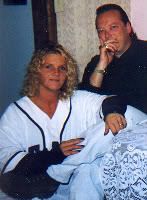




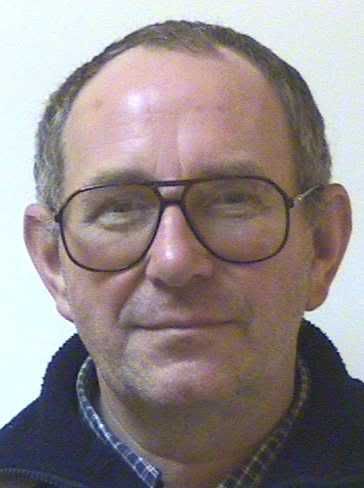
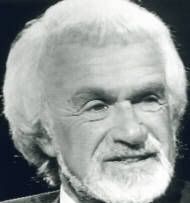

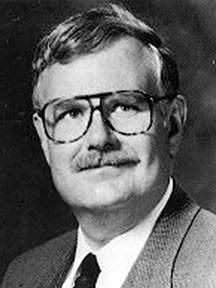
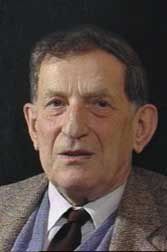

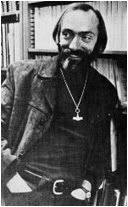
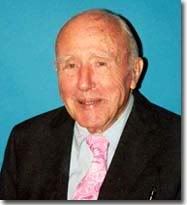
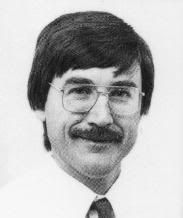

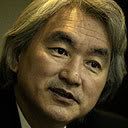

<< Home